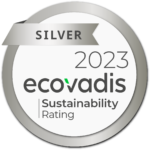Fernox Antifreeze Protector Alphi-11 has gained the NSF HT1 registration, meaning it is certified safe for ‘incidental food contact’. As a result, Fernox Antifreeze Protector Alphi-11, which combines the benefits of a best-in-class inhibited antifreeze with a non-hazardous, low environmental impact product, can be used safely with combined heating and potable water systems that include a single-walled heat exchanger.
Manufactured in the USA, Fernox Antifreeze Protector Alphi-11 maintains the efficiency and prolongs the lifespan of hydronic heating systems by protecting against the build-up of corrosion and scale, while also guarding against freezing pipes in temperatures as low as -29.2°F (-34°C). The product is compatible with all metals and materials commonly used in hydronic systems including aluminum. It is ideal for use in domestic and commercial buildings as well as geothermal systems, heated driveway (snow melt) applications and mobile homes.
The NSF HT1 registration demonstrates that the ingredients and formulation of Fernox Antifreeze Protector Alphi-11 are safe for use in applications where there is a possibility for incidental food contact. This registration was initially focused on food-processing applications, but it is now recognized as a requirement in all hydronic systems across many states. Specifically, multiple states require this registration for products used in systems that feature a single-walled heat exchanger, which are more cost effective and energy-efficient than double-walled exchangers.
Fernox Antifreeze Protector Alphi-11 is a high-performance inhibitor and antifreeze that is less harmful to the environment than alternative food-grade phosphate-based inhibitors. Potassium phosphate-based products are generally less effective at preventing the corrosion of yellow metals such as copper and brass, which are present in hydronic systems. Also, phosphate-based inhibitors often precipitate in hard water, creating scale forming calcium phosphate, which can damage the boiler and other key components. In addition, if phosphate is released into rivers, lakes and other surface water it can cause over enrichment, resulting in algae blooms that damage the aquatic environment. Indeed, many wastewater treatment authorities are even restricting phosphate discharge to foul sewers, due to the problems it can cause.
Fernox Antifreeze Protector Alphi-11 is convenient to use as it does not need to be used with deionized water. It is stable and suitable to use with waters of varying quality, including city water. The concentration of Fernox Antifreeze Protector Alphi-11 required depends on the level of antifreeze protection needed but at the minimum 25% concentration it will protect against temperatures down to 12.2 °F (-11°C). Where necessary, this can be increased to 50% to achieve system protection down to -29.2 °F (-34°C).
For convenience, Fernox Antifreeze Protector Alphi-11 is available as a concentrated product that can be diluted to the required level on-site. It can also be supplied to order in pre-mixed 30%, 35%, 40%, 45% and 50% concentrations in volumes up to 330 gallons.
Dan Slater, Director of Sales (Americas) at Fernox said: “There is now a growing number of local regulators only approving the use of HT1 products for hydronic heating systems. This new registration for Fernox Antifreeze Protector Alphi-11 provides engineers and building owners with an alternative to the less effective and more environmentally concerning phosphate-based formulations. The proven performance of Fernox Antifreeze Protector Alphi-11 can provide peace of mind that the system is well protected against corrosion and scale as well as damage from freezing pipes.”
To find out more about Fernox Antifreeze Protector Alphi-11, click here






















